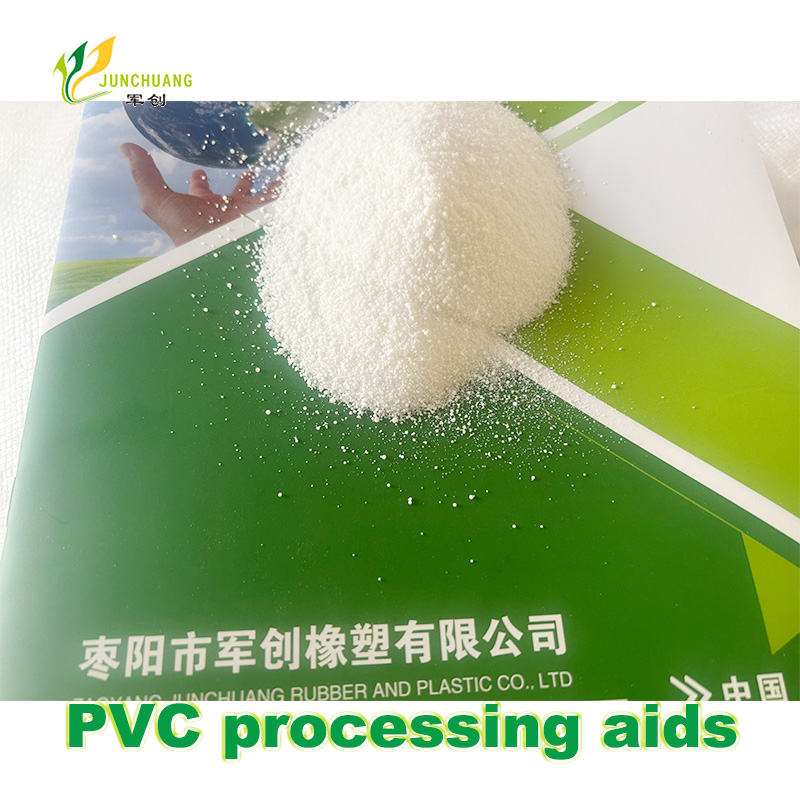What is plasticising?

Plasticisation is the whole process in which plastic is heated in a cylinder to reach a flow state and good plasticity. Specifically, plasticisation is the process of transforming plastic materials from solid particles to a viscous flow state by heating them to form a homogeneous melt with good plasticity. This process is usually carried out in extruders, refiners, openers and other equipment, the purpose is to make the material melt under a certain temperature and shear, remove the water and volatiles, so as to obtain a uniform material with a certain degree of plasticity.
In the production of PVC products, the proper use of lubricants and the precise control of the plasticising state are the key to determining product quality and production efficiency.
JC-880 PVC Processing Aids is the best choose for PVC products.Excellent performance polyvinyl chloride processing aids
Five-dimensional diagnosis of the plasticising state
- Direct observation of melt appearance Ideal state: the melt is a smooth homogeneous fluid, no unmelted particles. Abnormal signals: surface roughness (under-plasticisation), yellowing and brittleness (over-plasticisation).
- Torque rheometer data interpretation plasticisation time (T₀): T₀ is too short need to increase the external lubricant, delay the start of plasticisation. Balancing torque: Abnormally high torque may be due to insufficient internal lubrication or overfilling.
- Poor gloss / flow marks on the surface of the product: Insufficient external lubrication or uneven plasticisation. 4. Bubbles / yellow lines: excessive plasticisation leading to decomposition, need to reduce temperature or adjust the external lubricant.
- Processing parameters real-time monitoring of the host current: too high a current (overplasticisation) requires a reduction in the internal lubrication; too low (underplasticisation) the opposite is true. Melt pressure fluctuation: lubrication imbalance triggers unstable plasticisation and requires optimisation of ratios.
- Laboratory precision testing DSC analysis: quantify the degree of plasticisation by melt peak temperature. Yellowing index test: to determine whether thermal degradation is caused by over-plasticisation.